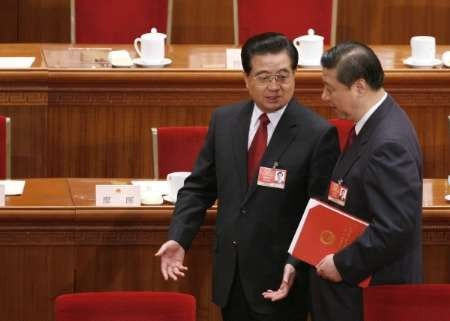Economic implications of Xi Jinping's rise to leadership

China recently confirmed Vice President Xi Jinping as its next President by selecting him as the vice chairman of the Central Military Commission, a position that virtually guarantees the presidency in 2012. Given Xi's background, he is likely to favor the coastal regions and continue China's export-driven economic model and, therefore, unlikely to pursue structural reforms like distributing income to inner regions or taking dramatic steps to cultivate domestic consumption.
China's coastal regions have historically been wealthier than inner areas, and that disparity is a source of constant tension. China also struggles with how it deals with the outside, swinging between engaging in burgeoning foreign trade to closing the country off completely, said George Friedman, chief intelligence officer of Stratfor, a global intelligence company.
In recent history, Communist China's founder Mao Zedong took the country to one extreme when he used a mostly inland peasant army to take over the country, drive out foreigners, and then limit China's contact with the outside world.
Deng Xiaoping, Mao's successor, took China back from that extreme. He deepened relationships with non-Communist countries and opened up trade with the West. China's economic growth soared, with coastal regions reaping most of the benefits. When China joined the World Trade Organization (WTO) at the end of 2001 under President Jiang Zemin, it took another giant step away from Mao's isolationist policy.
Under Deng's export-driven model, the government subsidized coastal exporters at the expense of domestic consumption and inner-region development. Much of the country, especially the inner regions, remain extremely poor.
Furthermore, after the financial crisis, the West arguably cannot provide China with high levels of demand any more, so China may have to look to domestic demand.
However, under Xi Jinping, reform may be unlikely. If Xi is indeed a coastal politician, he will continue the same pattern of subsidizing exports at the expense of domestic consumption and emphasizing GDP growth above other considerations.
There is no question that Xi's political support comes from coastal regions, said Matt Gertken, senior China analyst at Stratfor. Xi rose through the ranks of the Communist Party in Fujian, a coastal province across from Taiwan. He eventually became governor of the province. Afterwards, he moved to top positions in the Zhejiang province and in Shanghai, both coastal areas.
Xi is a protégé of former president Jiang Zemin, himself a coastal president who was accused of pushing through GDP growth at all costs. In fact, Jiang's support likely landed him the presidency over Li Keqiang, current president Hu Jintao's top choice for the job.
Gertken said Xi will continue the legacy of growing the economy through the manufacturing sector. He probably will not take dramatic steps to cultivate domestic consumption or distribute income from coastal regions to poor inner regions.
He is unlikely to sacrifice GDP growth to pursue these structural reforms to produce a more harmonious society, the domestic ideological vision of current president Hu Jintao.
Hu Jintao is certainly more inner region-oriented than his predecessor Jiang Zemin and probably more so than his successor Xi Jinping. So if structural reforms did not really happen under Hu Jintao, there is arguably even less chance it will occur under Xi.
However, Xi will not ignore the inner regions. He is a consensus-builder and enjoys some degree of support from Hu Jintao's faction, so the harmonious society agenda will not be completely forgotten. Indeed, Xi is also seen as Hu Jintao's protégé, in addition to being Jiang's.
Moreover, early in his political career, Xi served in the inner provinces of Shaanxi and Hebei. Before that, he was sent to work in the countryside in Shaanxi province during the Cultural Revolution* as a teenager and experienced the hardships common to Chinese people, said Gertken. Xi's ancestral home is also in Shaanxi.
So while Xi is definitely a coastal president, he is a moderate who will not grossly neglect the economy of the inner regions.
Email Hao Li at hao.li@ibtimes.com
Click here to follow the IBTIMES Global Markets page on Facebook.
Click here to read recent articles by Hao Li.
*Xi Jinping is the son Xi Zhongxun, a important political and military leader from Mao Zedong's era. The elder Xi was in favor political and economic reform; he was an early architect of China's export-driven model and criticized the government for its role in the 1989 Tiananmen Square incident.
His ideological disposition got him in trouble during the Cultural Revolution, a period of massive social upheaval and widespread political persecution, and the elder Xi was jailed and tortured. Xi Jinping, at that time a teenager, was reportedly jailed at times and harassed.
Xi Jinping's short stint in the countryside was not a career choice, but something forcibly imposed upon him. Therefore, it was not a sheltered or symbolic position, and Xi as a teenager probably experienced the profound hardships of rural Shaanxi, an inner province.
© Copyright IBTimes 2025. All rights reserved.





















